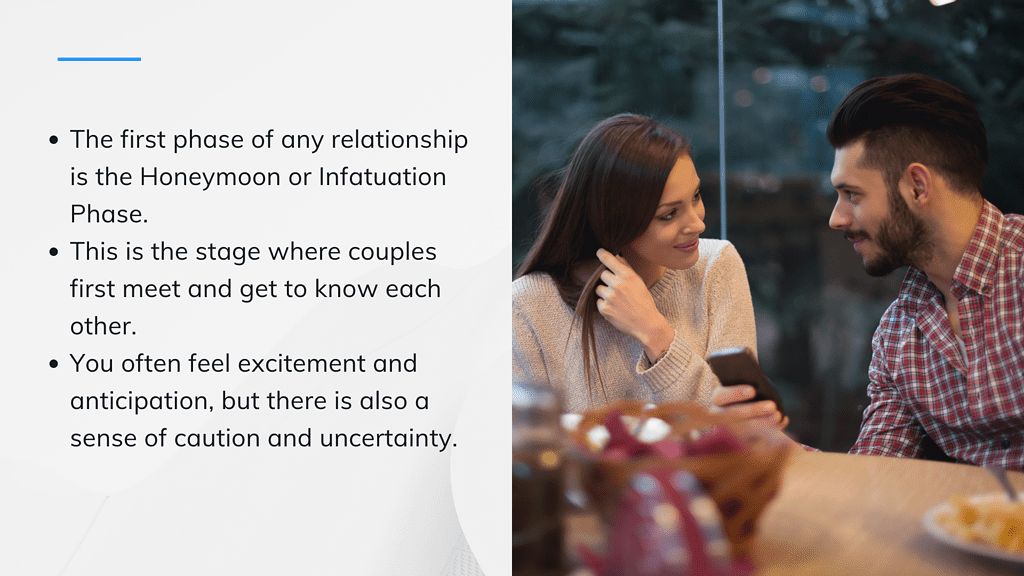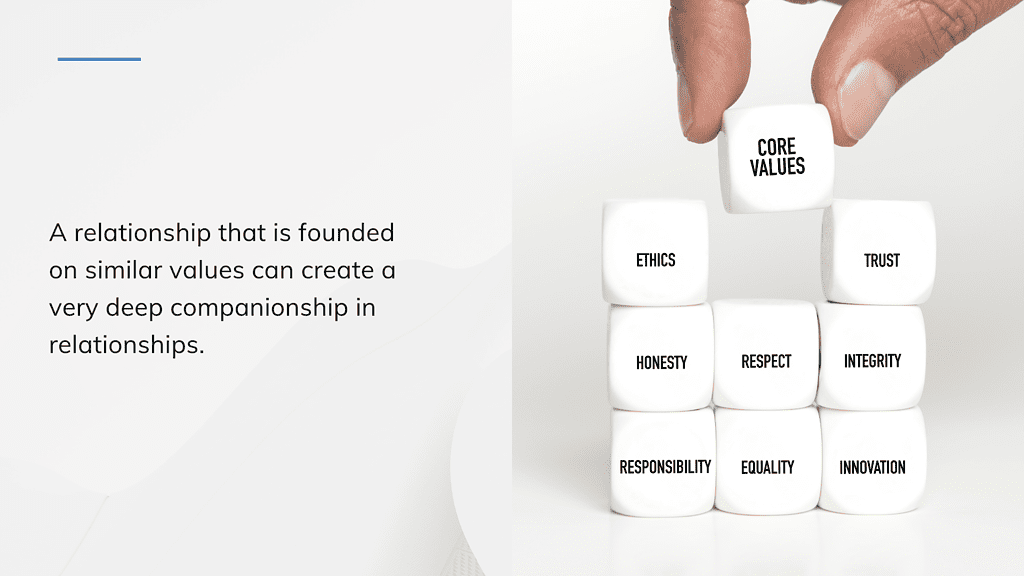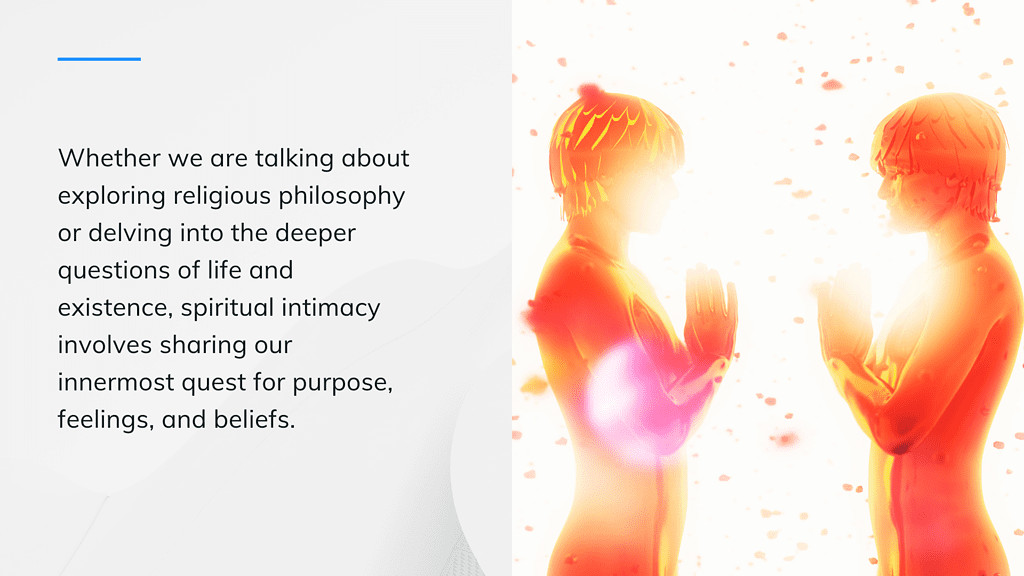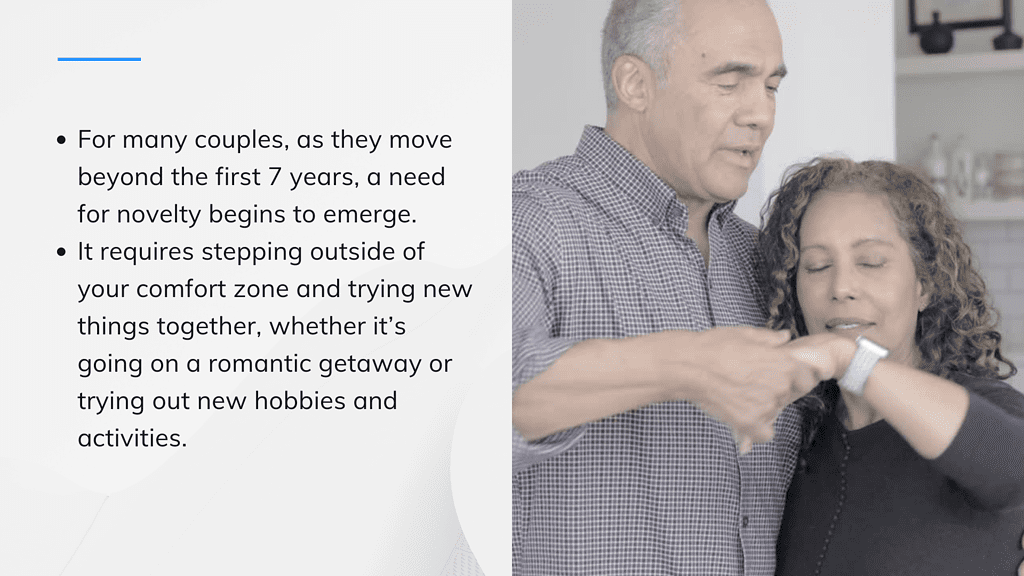A Comprehensive Guide to understanding different types of intimacy in relationships and how they evolve during a relationship.
Intimacy in relationships is a complex and beautiful thing. It can mean different things to different people, but at its core, intimacy in relationships is about sharing a deep, meaningful, and heartfelt connection. We all crave intimacy in relationships in some way or another – it is what drives us to connect with others.
In this blog post, we will explore the different phases of romantic relationships and discuss how intimacy in relationships builds through these phases.
Table of Contents
Phases of an Intimacy in Relationships
A. The Honeymoon Phase

In this phase, deep physiological reactions start to kick off, as our brains release chemicals like dopamine and oxytocin that create feelings of pleasure, euphoria, and excitement.
This is why new relationships can often feel intoxicating!
When you meet the right person, you feel that initial spark of attraction, it can be electric. All of a sudden, you feel alive and excited in a way you may have never experienced before.
Your heart races, your palms sweat, and you can’t seem to think about anything else but the object of your affection.
When you hear the voice of your partner, it grabs your attention and you drop everything else. When you see their smile, it makes your day. Kissing can induce a natural high!
You are consumed with thoughts of this person and you can’t wait to be with them again.
Days seem to blur together and you can’t get enough of each other. You may feel like you are in a dream and that this person is too good to be true.
It feels so dreamy, intoxicating, and perfect. At the same time, there is also a certain fear, about whether this closeness will grow into something more, or not.
Couples often mistakenly believe that once the honeymoon phase is over, the relationship is doomed, most romance movies & novels end here.
However, this simply isn’t true! All relationships go through different phases, and it is normal for the initial infatuation & rush to taper off (usually over 2 years), as you get to know each other better.
The key is to move the relationship and closeness to the next phase.
There are other forms or different forms of first encounters and infatuation. Let me open the curtains on this mystery & take you behind the scenes in this article here.
B. The Exploration Phase

The relationship has the potential to move beyond a sexual relationship and more factors come into play, such as the person’s ideas, deepest thoughts, sense of humor (and inside jokes), deepest fears, and baggage from previous sexual experiences.
It would involve understanding their emotional make-up, friendships, close relationships, parents, and children (if applicable).
Romantic partners move towards gradual “self-disclosure”. Every couple subconsciously explores their natural strengths to build intimacy.
Intimacy in relationships during this phase can take many forms. Let’s explore the 7 most common types of intimacy below:
1. Physical Intimacy

This type of intimacy is important because it helps to create a sense of closeness and connection.
The body language of physical intimacy tells the other person that they are important to us and that we miss them.
Moments of physical intimacy give us the opportunity to bond with each non-verbally, going beyond just words and sex.
You may also notice that close friends have such moments. Physical touch makes people feel safe and reduces fear in an otherwise uncertain, fast-paced world.
2. Emotional Intimacy

This type of intimacy is important because it allows you to be vulnerable with another person and build trust, you are opening up to them and giving them a glimpse into your inner emotions.
You are trusting that they will listen to you without judgment and will accept you for who you are.
When it comes to our deepest fears, nothing is more terrifying than the prospect of losing an intimate relationship.
Sharing emotions without reservations can trigger fears about being judged, losing emotional closeness, or being abandoned by a romantic partner — fears that often stem from childhood experiences. Understanding how childhood shapes relationship patterns can help couples uncover and address these deep-seated fears.
So even if you may feel afraid at times, remember intimate relationships take work, relationships require attention, and you may need to talk about at least some emotional topics from time to time and not totally ignore them.

3. Intellectual Intimacy

You may problem-solve, think of strategies and even discuss the best ways to handle an issue.
This type of intimacy can also lead to some interesting debates and discussions!
Additionally, mental intimacy can help you learn more about yourself and grow as a person.
You may share some level of mental intimacy with friends, however here the purpose is mostly to exchange opinions and perspectives.
But with a partner, intellectual intimacy goes beyond sharing your thoughts and ideas, it’s so you understand their world view and hold space for them.

4. Values-Based Intimacy

Both partners have similar values, outlooks, and approaches toward ethics, controversial topics, children, political stance, success, ambition, and right & wrong.
This type of closeness is rare and leaves people with a feeling that the other partner can complete their sentence and read their mind, even in areas where values are different, people often make amends to eliminate incongruence.
5. Experiential Intimacy

Through these shared experiences, couples are able to support each other and develop feelings of trust, cooperation, and closeness in their relationship.
Ultimately, experiential intimacy is about making memories that bring you both closer together over time.
Whether it’s a trip down memory lane or an exciting new adventure, these shared experiences are truly what keep intimate relationships sparkling and make life interesting.
6. Sexual Intimacy

When you open yourself to your partner in this most intimate way, you are expressing your deepest desires, and baring yourself in a way that transcends rationality and logic.
Attitudes toward sex involve a lot of conditioning and sex is both celebrated and demonized based on where you live, in fact, it is largely influenced by how your parents were with each other.
Children subconsciously absorb certain beliefs about intimacy in a relationship and sex from their households which can create an inner feeling of struggle when they try to let go.
If one partner in a relationship has never had the experience of being emotionally intimate before, then the couple needs to first work on developing intimacy.
Through sex, you come closer together with your partner, creating a complete union that cannot be found anywhere else. With sexual intimacy, two people become one!
7. Spiritual Intimacy

At its core, spiritual intimacy in a relationship is about finding a spiritual meaning to the physical or emotional intimacy you share.
Many people place a lot of importance on spiritual intimacy, believing that such spirituality transcends the physical world. Indeed spiritual connections are rare!
They create a moment that is based on something eternal and unchanging. A quest for spirituality can bind relationships at the very core, creating a feeling of oneness with existence.
Feelings of fear start to melt away, as couples start feeling more grounded in these relationships. This type of spiritual closeness & sharing can be incredibly powerful, enriching, and meaningful.
To read more about each of these types of intimacy, click on the subheading for each type of intimacy.
C. Emotional Investment Phase

During this time, couples will need to be proactive and open in their pursuit of authentic forms of connection and have deeper conversations about their views, desires and fears in relationships.
Intimate Relationships can evolve to stronger levels of trust and emotional understanding that will prepare you both for the challenges ahead.
Ultimately, this stage is all about investment: investing time and energy into building a lasting partnership that can withstand the ups and downs of life. While not easy, it sets you up for long-term success in love.
D. Commitment Phase

During this stage, in addition to deepening their initial levels of intimacy mentioned in the previous phase, couples must learn to navigate new challenges and setbacks as they arise.
This can be both exciting and nerve-wracking but ultimately helps to strengthen the bonds between partners.
As they face adversity together and support one another through challenging times, couples build a deeper sense of trust that leaves them knowing in their hearts that they can always count on each other.
Novelty Phase

Deliberately planning adventurous trips, exploring new cultural experiences, or simply spending more time alone with each other, every deliberate attempt infuses novelty into your relationship and reminds you why you fell in love in the first place.
Working together to make meaningful goals, supporting individual aspirations, and respecting each other value systems will help you create a sustainable intimate relationship for life.
When planned correctly, this phase can be full of rewards. It allows you to grow as individuals, get through the fear of survival, and hardships, celebrate accomplishments together, and rejuvenate year after year. So don’t be afraid to step out of your comfort zone!
No matter what stage of intimacy you are in, it is important to communicate with your partner and build trust.
These are the foundation of any healthy relationship. If you are having trouble communicating or building trust, there are many resources available to help you.
Intimacy is a beautiful thing that can bring couples closer together. By investing and learning you build the words and the vocabulary needed to create a deeper connection with your partner and build a stronger relationship.









0 Comments